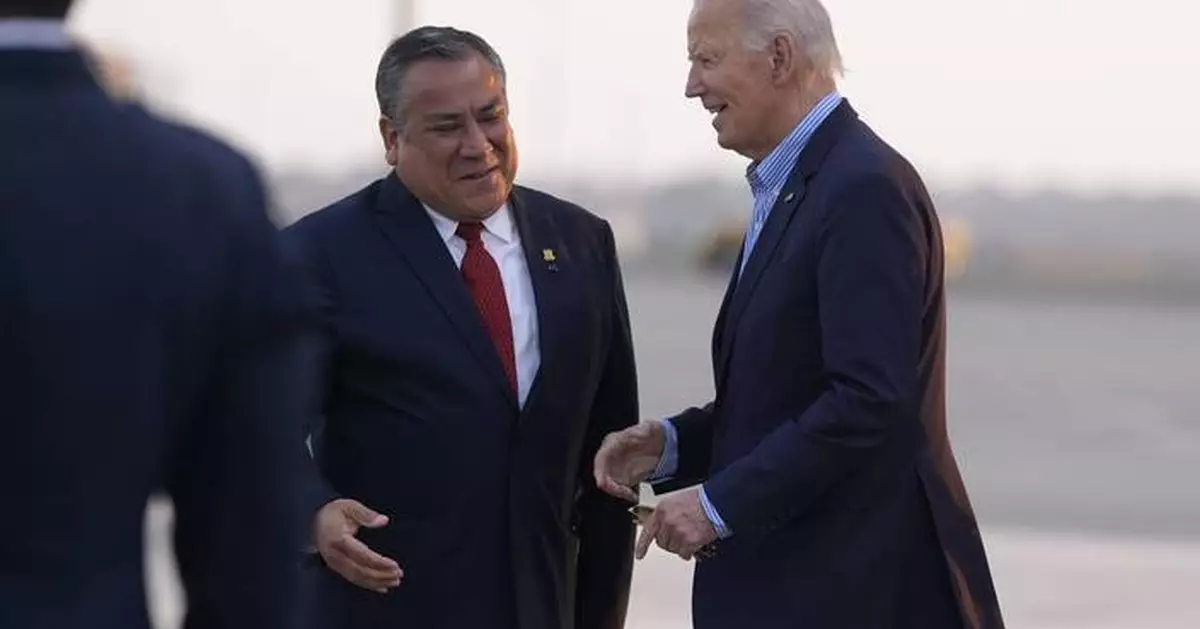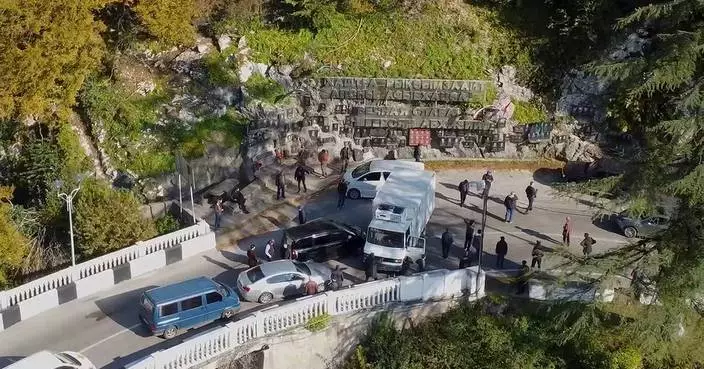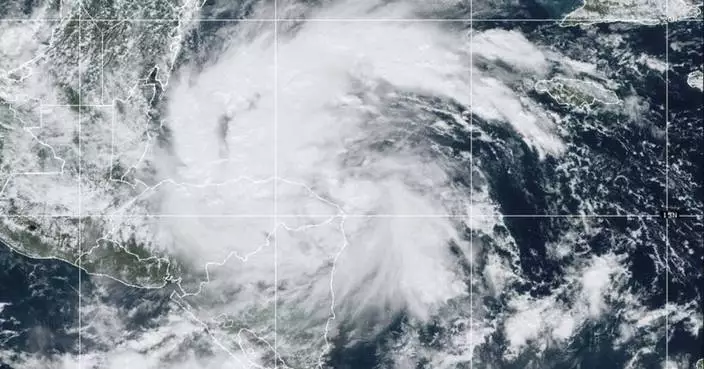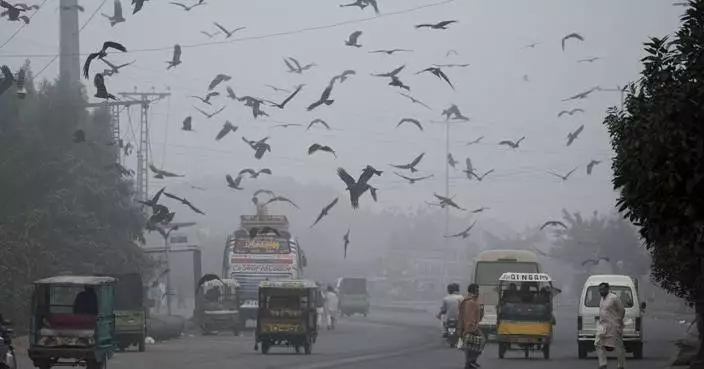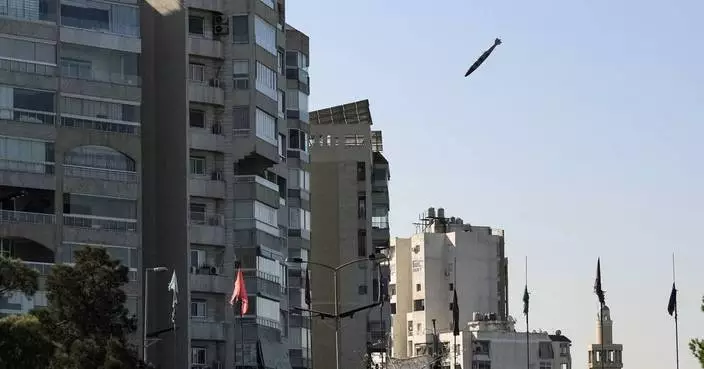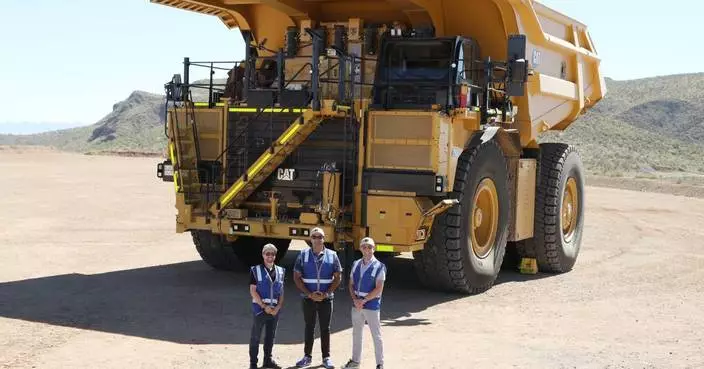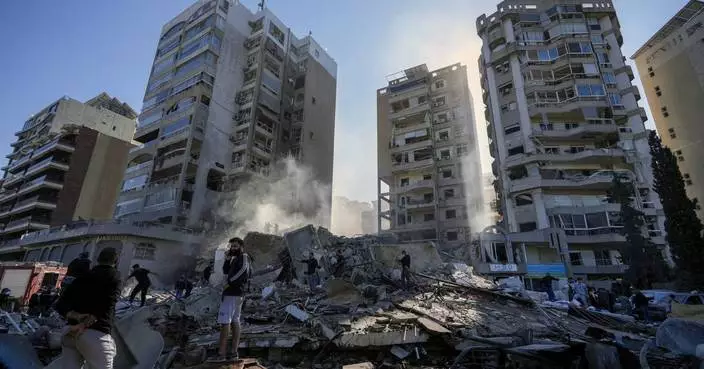LIMA, Peru (AP) — President Joe Biden is gathering South Korean President Yoon Suk Yeol and Japanese Prime Minister Shigeru Ishiba for talks Friday amid heightened concerns about North Korea’s growing military partnership with Russia and Pyongyang’s stepped-up cadence of ballistic missile tests.
The meeting on the sidelines of the Asia-Pacific Economic Cooperation summit in Peru comes as North Korea has deployed thousands of troops to Russia to help Moscow try to claw back land in the Kursk border region that Ukraine seized earlier this year.
North Korean leader Kim Jong Un also ordered a series of ballistic missile tests in the lead-up to this month’s U.S. election and is claiming progress on efforts to build capability to strike the U.S. mainland.
White House officials are concerned that Pyongyang could be dialed up for more provocative action ahead of President-elect Donald Trump’s inauguration and the early days of his administration.
“I do not think we can count on a period of quiet with the DPRK,” said White House national security adviser Jake Sullivan, using the initials for North Korea's formal name. “The possibility of a seventh nuclear test remains ever present and something we’re vigilant for. The transitions have historically been time periods when the DPRK has taken provocative actions both before and after the transition from one president to a new president.”
The introduction of North Korean troops to the Russia-Ukraine conflict comes as Moscow has seen a favorable shift in momentum in the grinding war on its neighbor. Trump has signaled that he could push Ukraine to agree to give up some land seized by Russia to find an end to the conflict.
Up to 12,000 North Korean troops have been sent to Russia, according to U.S., South Korean and Ukrainian intelligence assessments.
U.S. and South Korean intelligence officials say North Korea also has provided Russia with significant amounts of munitions. South Korea’s spy agency said last month that North Korea had sent more than 13,000 containers of artillery, missiles and other conventional arms to Russia since August 2023 to replenish its dwindling weapons stockpiles.
Sullivan said the U.S., Japanese and South Korean leaders would use their meeting to discuss the North Korean soldiers in Russia and ensure their three countries are acting in a “coordinated way.”
Friday’s meeting will be the first face-to-face engagement between Biden and Ishiba, who took office on Oct. 1, replacing his unpopular predecessor Fumio Kishida.
Ishiba pledged to pursue a military buildup plan under a 2022 security strategy adopted by his predecessor, which calls for a counterstrike capability with long-range cruise missiles, a break from its self-defense only principle. Ishiba said he will seek to improve cooperation between Japanese and U.S. troops.
The trilateral talks are a follow-up on a partnership launched at a historic 2023 meeting between Biden, Yoon and Kishida at the U.S. presidential retreat at Camp David, Maryland.
Biden nudged Japan and South Korea to put aside years of historic animosity and strengthen economic and security ties as the countries confront the threat from North Korea as well increasing military assertiveness by China in the Pacific.
The three countries signed a pledge agreeing to consult, share information and align their messaging with each other in the face of a threat or crisis.
Sullivan said the Biden administration is working to ensure the three-country cooperation is “an enduring feature of American policy.” He expects it would continue under Trump, noting its bipartisan support, but acknowledged it was up to the incoming president’s team.
Both Yoon and Ishiba already have reached out to Trump and are aiming to keep their countries’ relationships with the incoming administration on steady footing amid the heightened tensions.
North Korea fired a barrage of short-range ballistic missiles into the sea just hours before Election Day in the United States.
Those launches came days after Kim supervised a flight test of the country’s newest intercontinental ballistic missile designed to reach the U.S. mainland. In response, the United States flew a long-range B-1B bomber in a trilateral drill with South Korea and Japan on Sunday in a show of force.
Biden also will meet Peru President Dina Boluarte on Friday.
Associated Press writer Rebecca Santana in Washington contributed to this report.
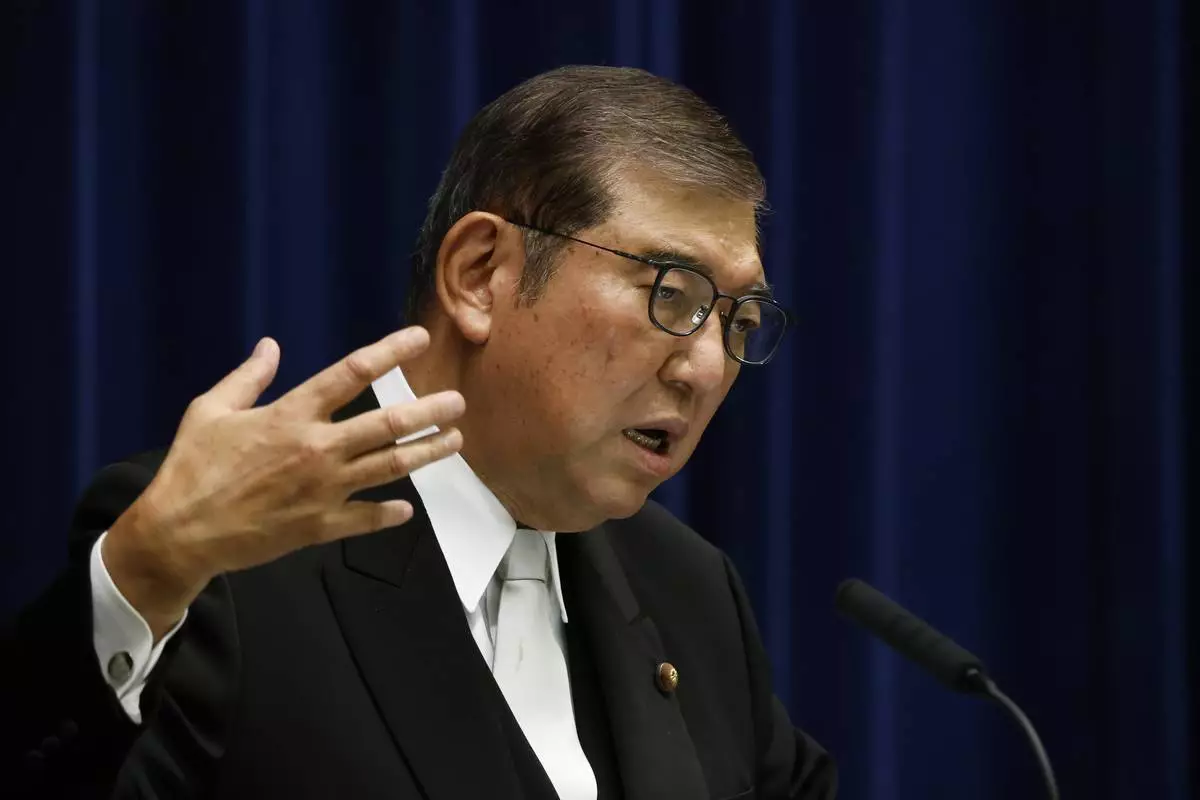
Japan's Prime Minister Shigeru Ishiba speaks during a news conference at the prime minister's official residence in Tokyo, Monday, Nov. 11, 2024. (Kiyoshi Ota, Pool Photo via AP)
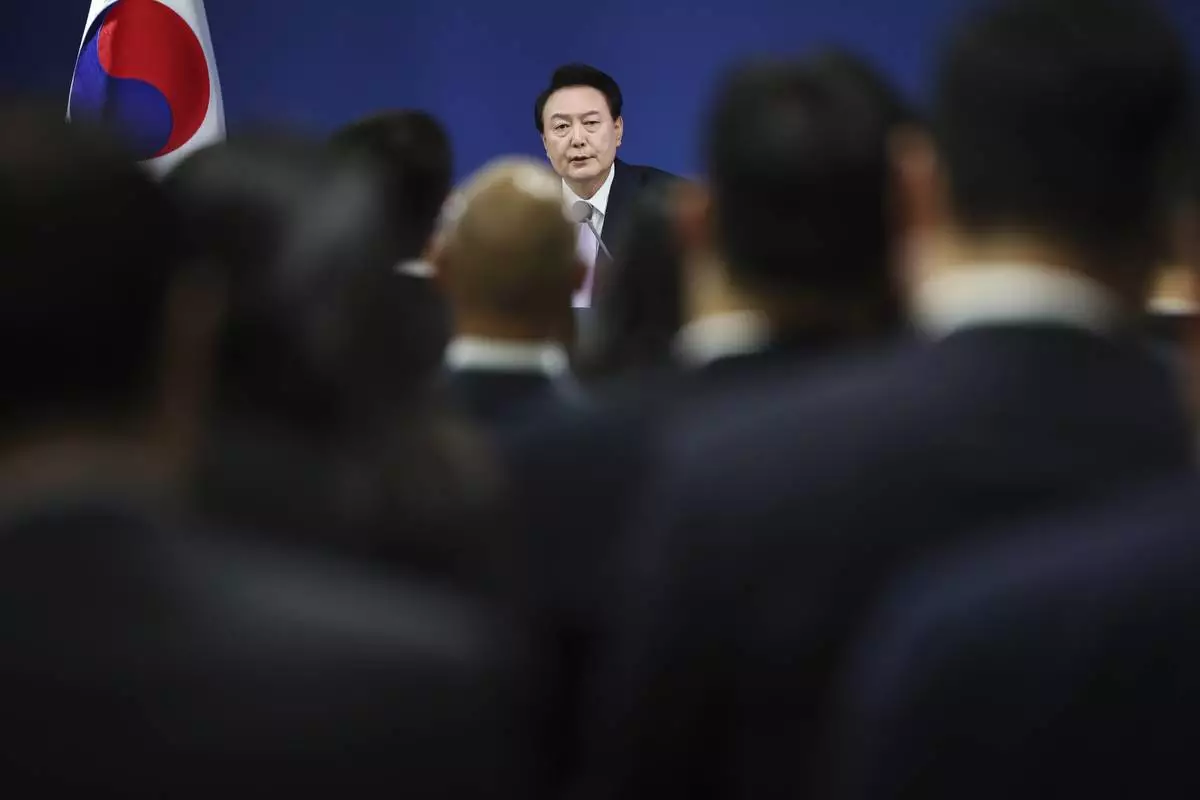
South Korean President Yoon Suk Yeol answers a reporters' question during a news conference at the Presidential Office in Seoul, South Korea Thursday, Nov. 7, 2024. (Kim Hong-Ji/Pool Photo via AP)
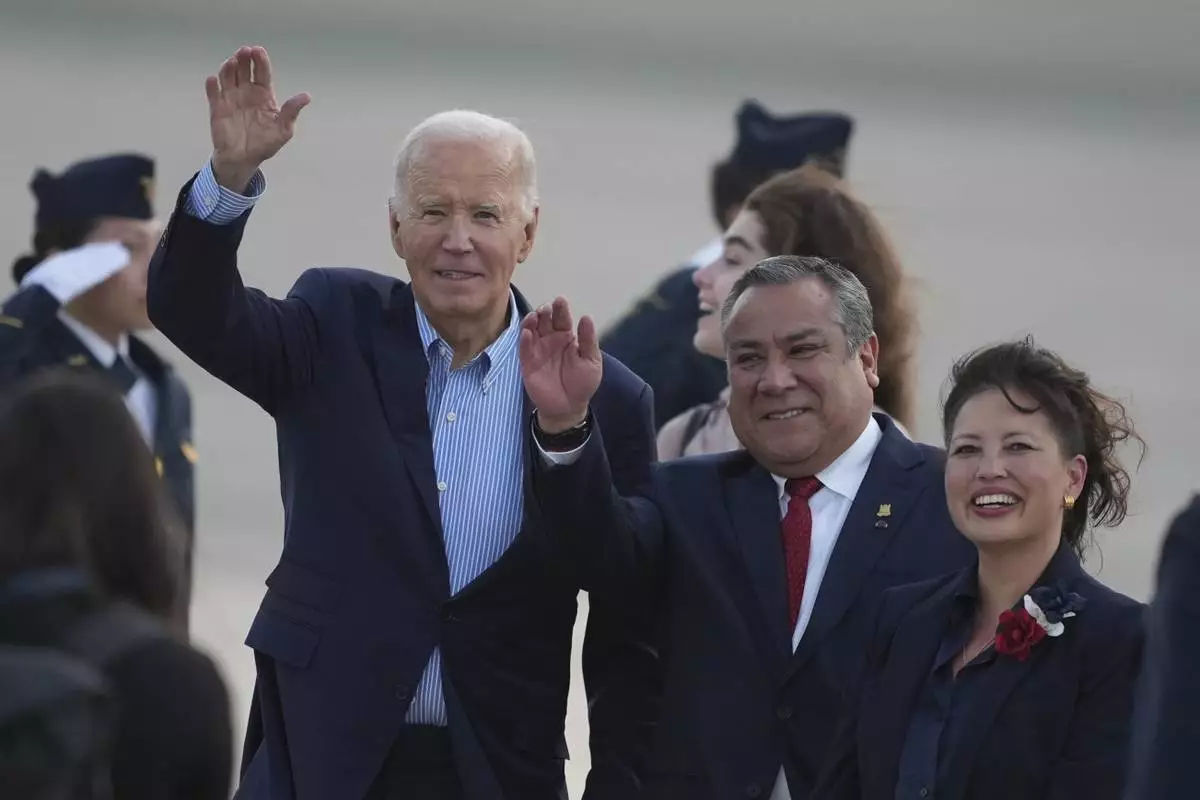
U.S. President Joe Biden, left, Peru's Prime Minister Gustavo Adrianzen, center, and US Ambassador to Peru Stephanie Syptak-Ramnath wave on the airport tarmac ahead of the Asia-Pacific Economic Cooperation (APEC) summit, in Lima, Peru, Thursday, Nov. 14, 2024. (AP Photo/Guadalupe Pardo)
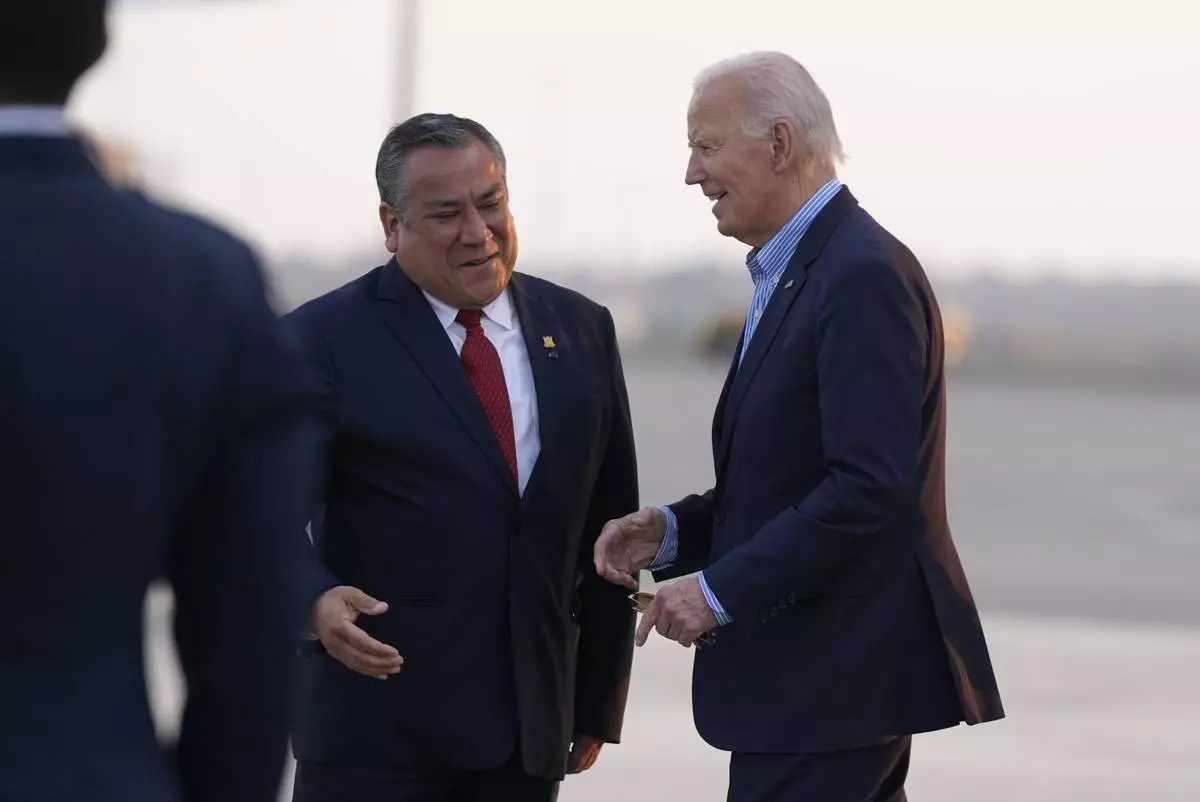
President Joe Biden greets Peru's Prime Minister Gustavo Adrianzen as he arrives at Jorge Chavez International Airport in Lima, Peru, Thursday, Nov. 14, 2024, to attend the APEC Summit. (AP Photo/Manuel Balce Ceneta)
BAKU, Azerbaijan (AP) — Good or bad, the United Nations climate negotiations process itself became the focus of the international talks that aim to curb warming from coal, oil and natural gas.
Environmental advocates released reports Friday decrying fossil fuel industry influence at these climate talks in Baku, Azerbaijan, called COP29. At the same time, a letter signed by a former United Nations Secretary-General and ex-top climate negotiators called for dramatic reform. And the conference's chief negotiator said current talks — aimed at striking a multi-hundred billion dollar deal on financing a transition to clean energy and adapting to climate change — were going too slowly.
All that put the focus on process — not results.
“We consider COP29 as a litmus test for the global climate architecture," conference lead negotiator Yalchin Rafiyev said at a Friday news conference.
A letter signed by former U.N. chief Ban Ki-Moon, former U.N. climate secretary Christiana Figueres and former Ireland President Mary Robinson called for “a fundamental overhaul of the COP."
"We need a shift from negotiation to implementation,” it said.
Two of the signees — Figueres and Johan Rockstrom, director of the Potsdam Institute for Climate Impact Research — said the letter was being badly misinterpreted as criticism of the climate talks. They said the letter was intended to show support for the process, which they said has worked and just needs to shift into a new mode.
Instead of spending so much effort negotiating new deals in annual conferences that can attract 70,000 people, the process should be smaller more frequent and aimed at putting what was already agreed upon into action, Rockstrom said.
“Its about strengthening the COP," Rockstrom said. “It's about recognizing we’ve accomplished so much that we have what need. ... We really need to get serious about delivery."
Climate Analytics CEO Bill Hare said he had issues with some of the suggestions in the letter and personally considers the COP process broken. His analysis this week showed that after the 2015 Paris agreement projected future warming dropped, but in the past three years warming projections — based on negotiations, promises and policies — for the future have stayed the same or even gone up slightly.
An analysis from the Kick Big Polluters Out coalition said Friday that the official attendance list of the talks featured at least 1,770 people connected to the fossil fuel interests.
Catherine Abreu, director of the International Climate Politics Hub, suggested that there should be a “firewall” between fossil fuel lobbyists, U.N. climate bodies and negotiators from countries. “We know over 1700 fossil fuel lobbyists are here at COP29. That is not acceptable,” she said.
U.S. Vice President Al Gore, who on Friday presented new data on carbon pollution sites, said “it’s unfortunate that the fossil fuel industry and the petrostates have seized control of the COP process to an unhealthy degree."
For his part, COP29 negotiator Rafiyev defended the process.
“The process has already delivered, the COP process so far by reducing projected warming, delivering finance to those in need," Rafiev said. “It’s better than any alternative.”
One key benefit of the U.N. climate talks process is it is the only place where victim small island nations have an equal seat at the table, United Nations Environment Programme Executive Director Inger Andersen told The Associated Press. But the process has its limits because “the rules of the game are set by member states,” she said.
At a press conference with small island nations, chair Cedric Schuster said the negotiating bloc felt the need to remind everyone else why the talks matter.
“We’re here to defend the Paris agreement,” Schuster said, referring to the climate deal in 2015 to limit warming to 1.5 degrees Celsius (2.7 Fahrenheit) above pre-industrial times. “We’re concerned that countries are forgetting that protecting the world’s most vulnerable is at the core of this framework.”
Also at the talks Friday, new data from an organization co-founded by Gore that combines observations and artificial intelligence found that cities in Asia and the United States emit the most heat-trapping gas, with Shanghai the most polluting.
Using observations and artificial intelligence, Climate Trace quantifies heat-trapping carbon dioxide, methane and nitrous oxide, as well as other traditional air pollutants worldwide, including for the first time in more than 9,000 urban areas.
Seven states or provinces spew more than 1 billion metric tons of greenhouse gases, all of them in China, except Texas, which ranks sixth.
Earth's total carbon dioxide and methane pollution grew 0.7% to 61.2 billion metric tons with the short-lived but extra potent methane rising 0.2%. The figures are higher than other datasets “because we have such comprehensive coverage and we have observed more emissions in more sectors than are typically available,” said Gavin McCormick, Climate Trace's co-founder.
Shanghai's 256 million metric tons of greenhouse gases led all cities and exceeded those from the nations of Colombia or Norway. Tokyo's 250 million metric tons would rank in the top 40 of nations if it were a country, while New York City's 160 million metric tons and Houston's 150 million metric tons would be in the top 50 of countrywide emissions. Seoul, South Korea, ranks fifth among cities at 142 million metric tons.
“One of the sites in the Permian Basin in Texas is by far the No. 1 worst polluting site in the entire world,” Gore said. “And maybe I shouldn’t have been surprised by that, but I think of how dirty some of these sites are in Russia and China and so forth. But Permian Basin is putting them all in the shade.”
China, India, Iran, Indonesia and Russia had the biggest increases in emissions from 2022 to 2023, while Venezuela, Japan, Germany, the United Kingdom and the United States had the biggest decreases in pollution.
The dataset — maintained by scientists and analysts from various groups — also looked at traditional pollutants such as carbon monoxide, volatile organic compounds, ammonia, sulfur dioxide and other chemicals associated with dirty air. Burning fossil fuels releases both types of pollution, Gore said.
This “represents the single biggest health threat facing humanity,” Gore said.
The Associated Press’ climate and environmental coverage receives financial support from multiple private foundations. AP is solely responsible for all content. Find AP’s standards for working with philanthropies, a list of supporters and funded coverage areas at AP.org.
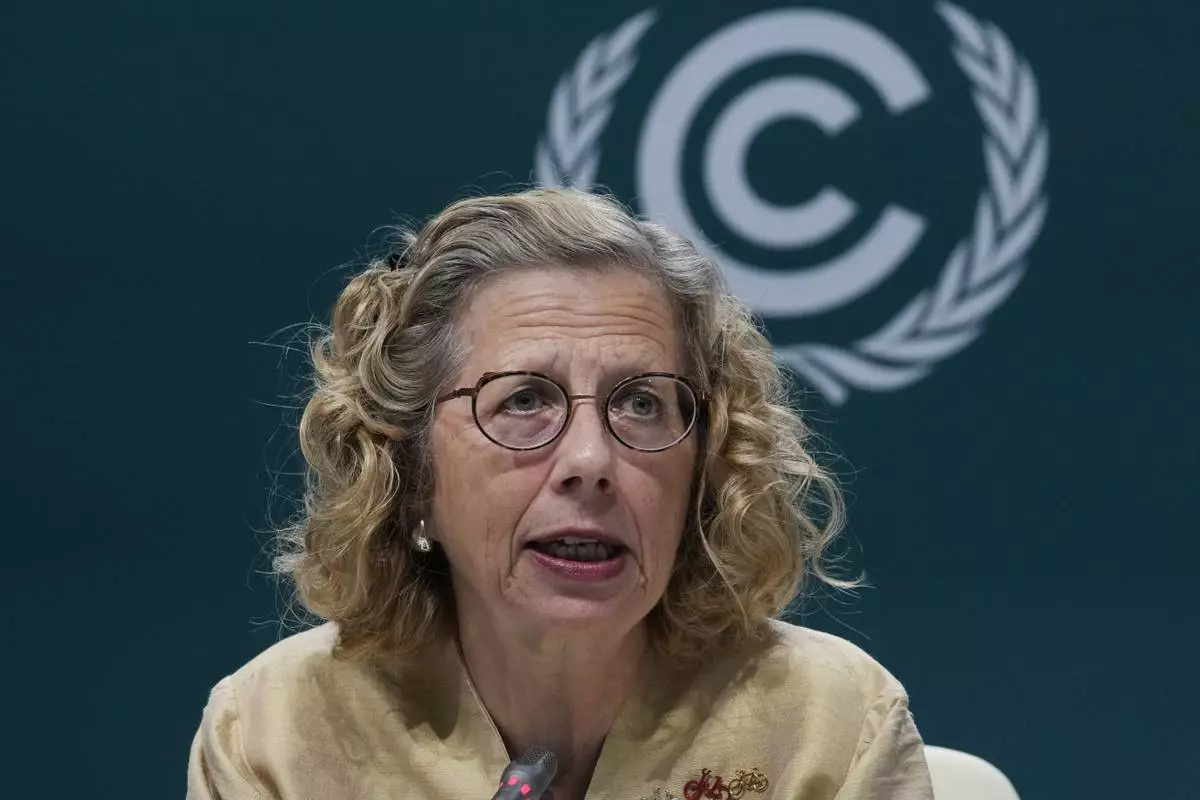
Inger Andersen, Executive Director UNEP, speaks during a session at the COP29 U.N. Climate Summit, Friday, Nov. 15, 2024, in Baku, Azerbaijan. (AP Photo/Rafiq Maqbool)
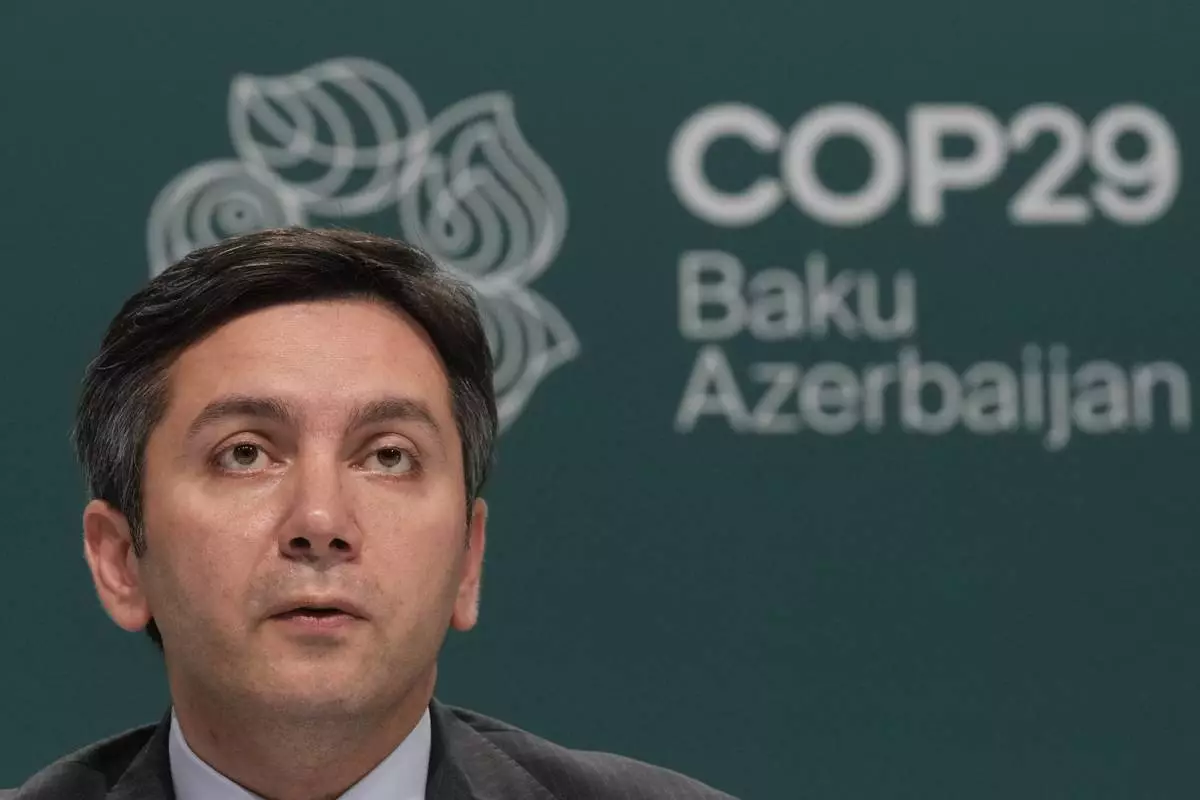
Yalchin Rafiyev, Azerbaijan's COP29 lead negotiator, speaks during a news conference at the COP29 U.N. Climate Summit, Friday, Nov. 15, 2024, in Baku, Azerbaijan. (AP Photo/Rafiq Maqbool)
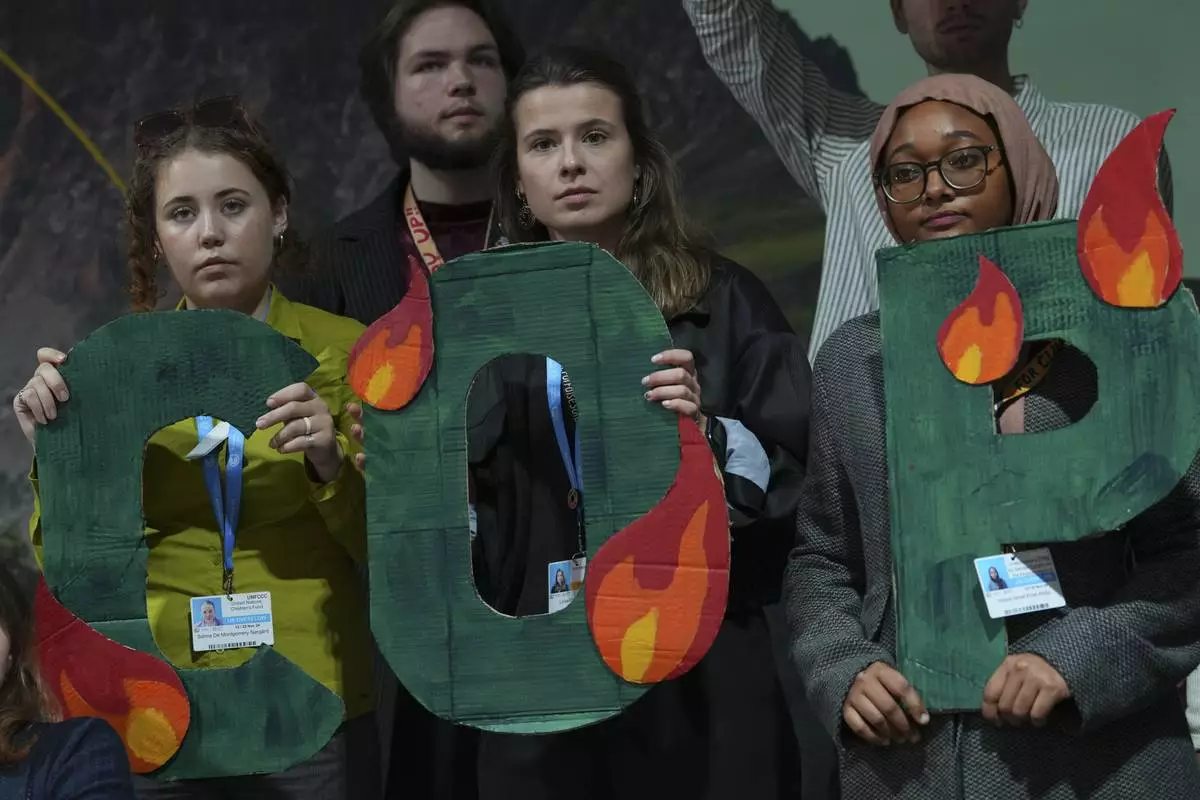
Activist Luisa Neubauer, of Germany, center, participates in a demonstration against fossil fuels at the COP29 U.N. Climate Summit, Friday, Nov. 15, 2024, in Baku, Azerbaijan. (AP Photo/Peter Dejong)
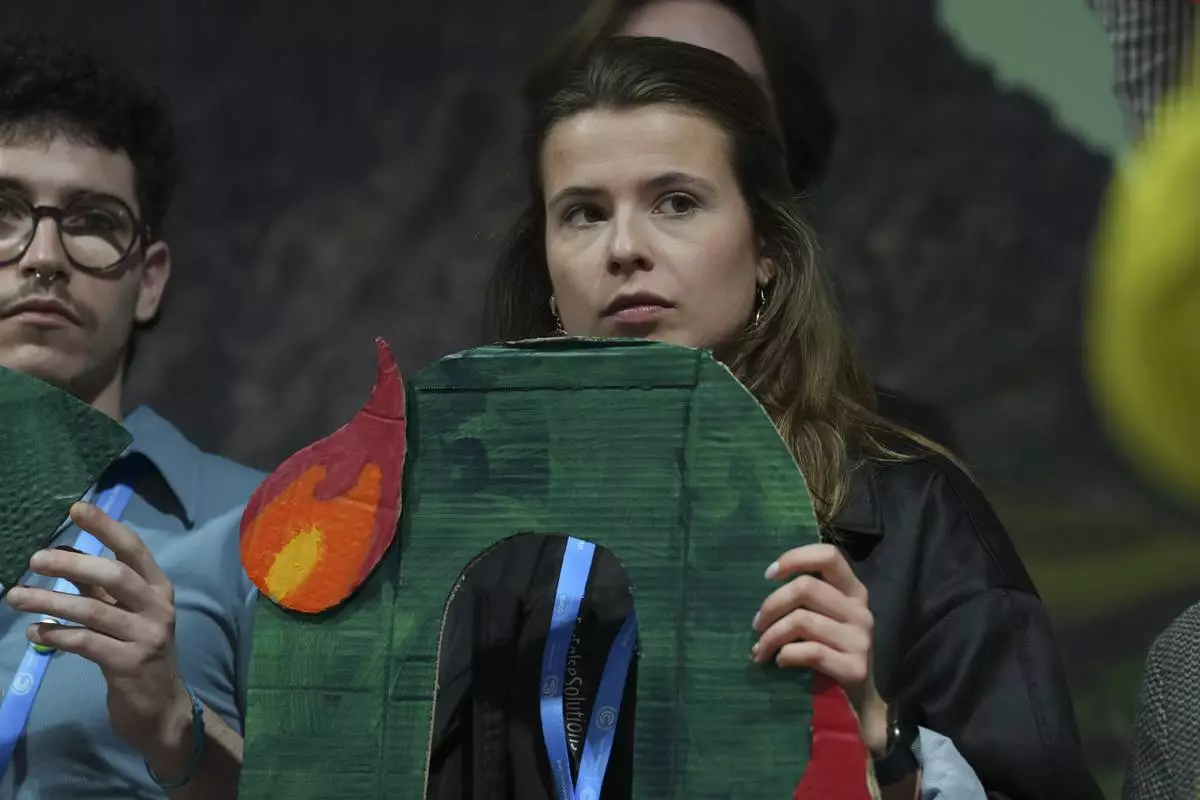
Activist Luisa Neubauer, of Germany, participates in a demonstration against fossil fuels at the COP29 U.N. Climate Summit, Friday, Nov. 15, 2024, in Baku, Azerbaijan. (AP Photo/Peter Dejong)

A person walks through the Turkey Pavilion during the COP29 U.N. Climate Summit, Friday, Nov. 15, 2024, in Baku, Azerbaijan. (AP Photo/Sergei Grits)
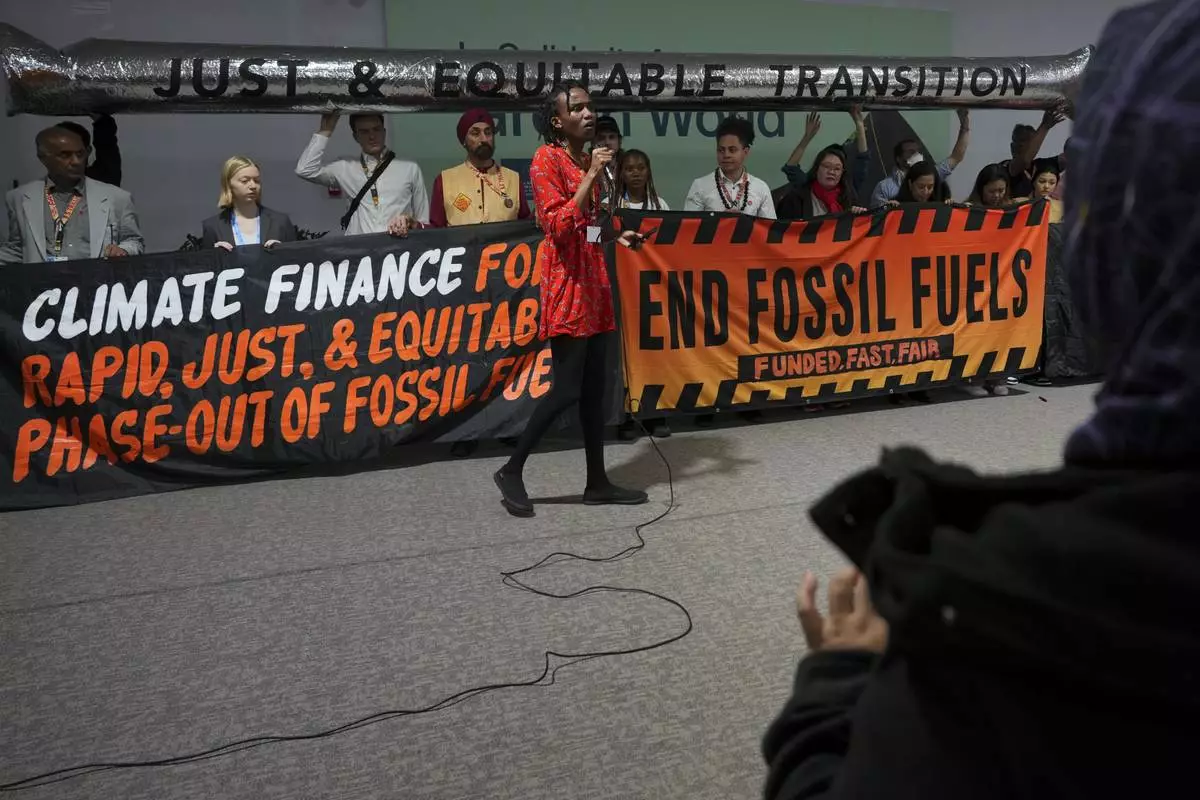
Eric Njuguna, of Kenya, participates in a demonstration against fossil fuels at the COP29 U.N. Climate Summit, Friday, Nov. 15, 2024, in Baku, Azerbaijan. (AP Photo/Peter Dejong)
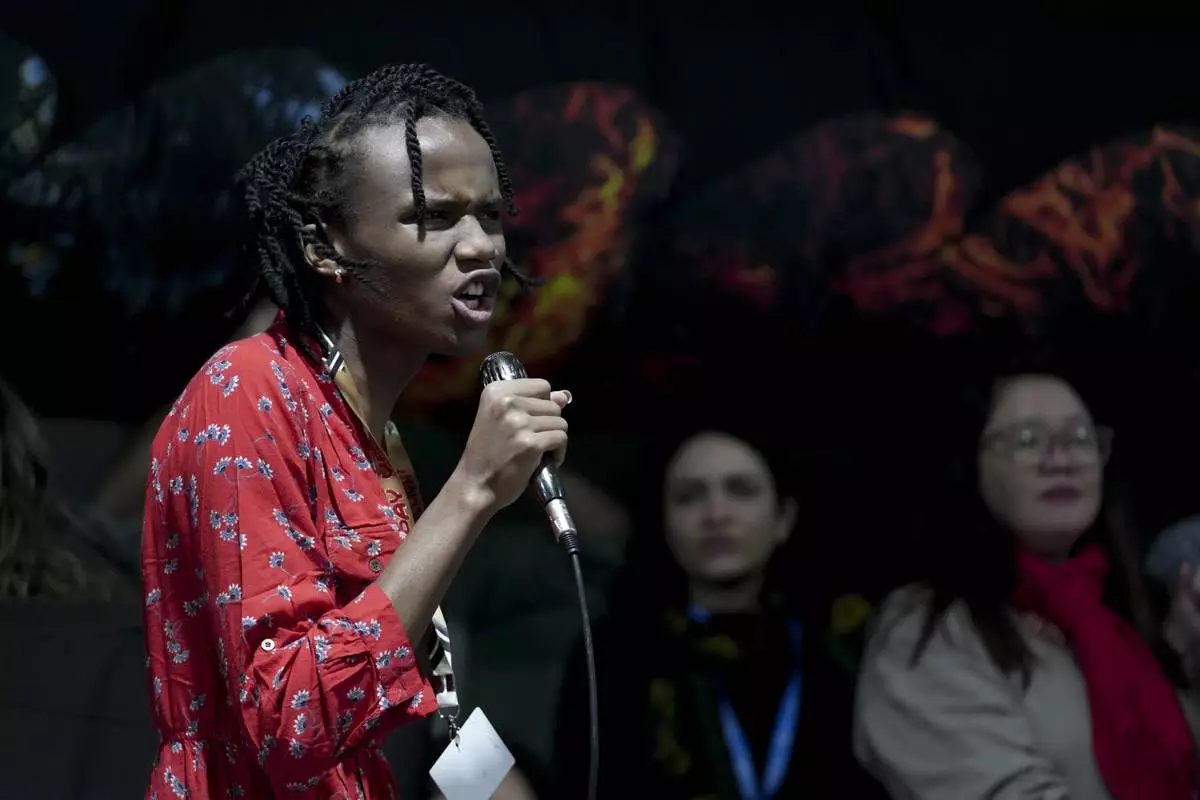
Eric Njuguna, of Kenya, participates in a demonstration against fossil fuels called weed out the snakes at the COP29 U.N. Climate Summit, Friday, Nov. 15, 2024, in Baku, Azerbaijan. (AP Photo/Joshua A. Bickel)
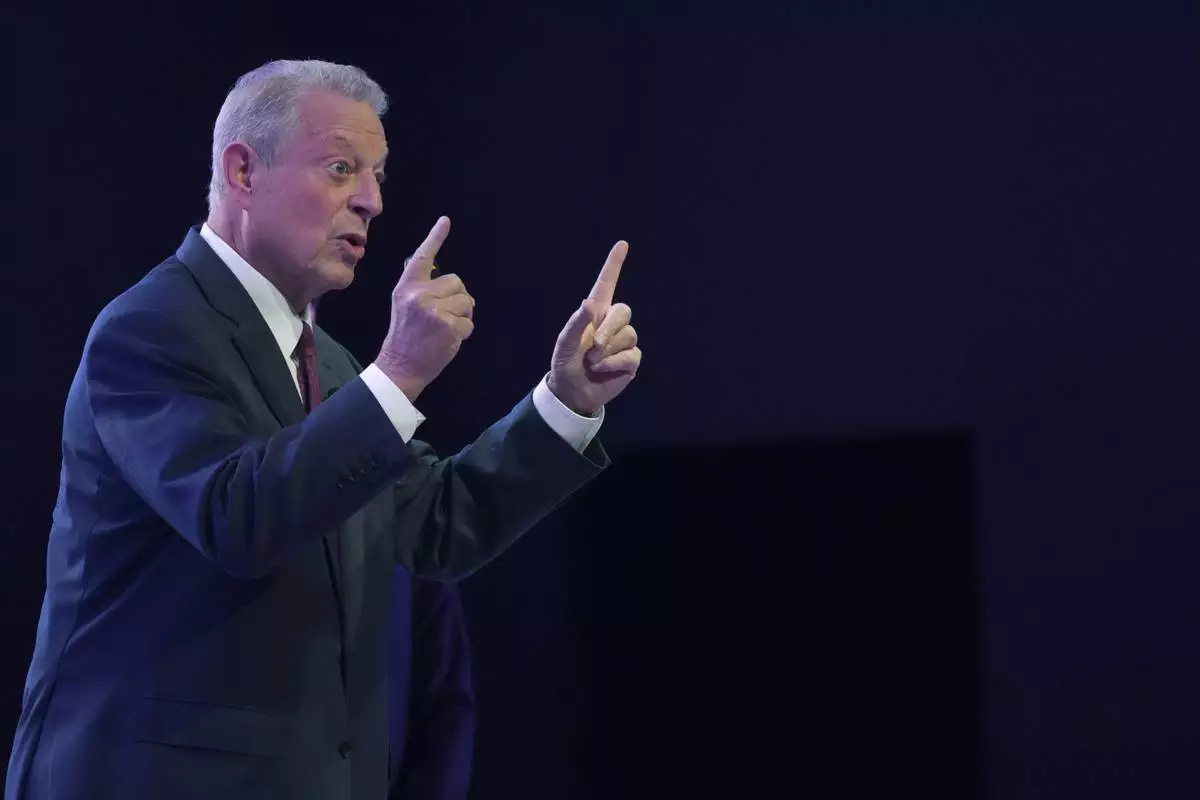
Former Vice President Al Gore speaks during a session on Climate Trace, a database that monitors emissions, at the COP29 U.N. Climate Summit, Friday, Nov. 15, 2024, in Baku, Azerbaijan. (AP Photo/Sergei Grits)
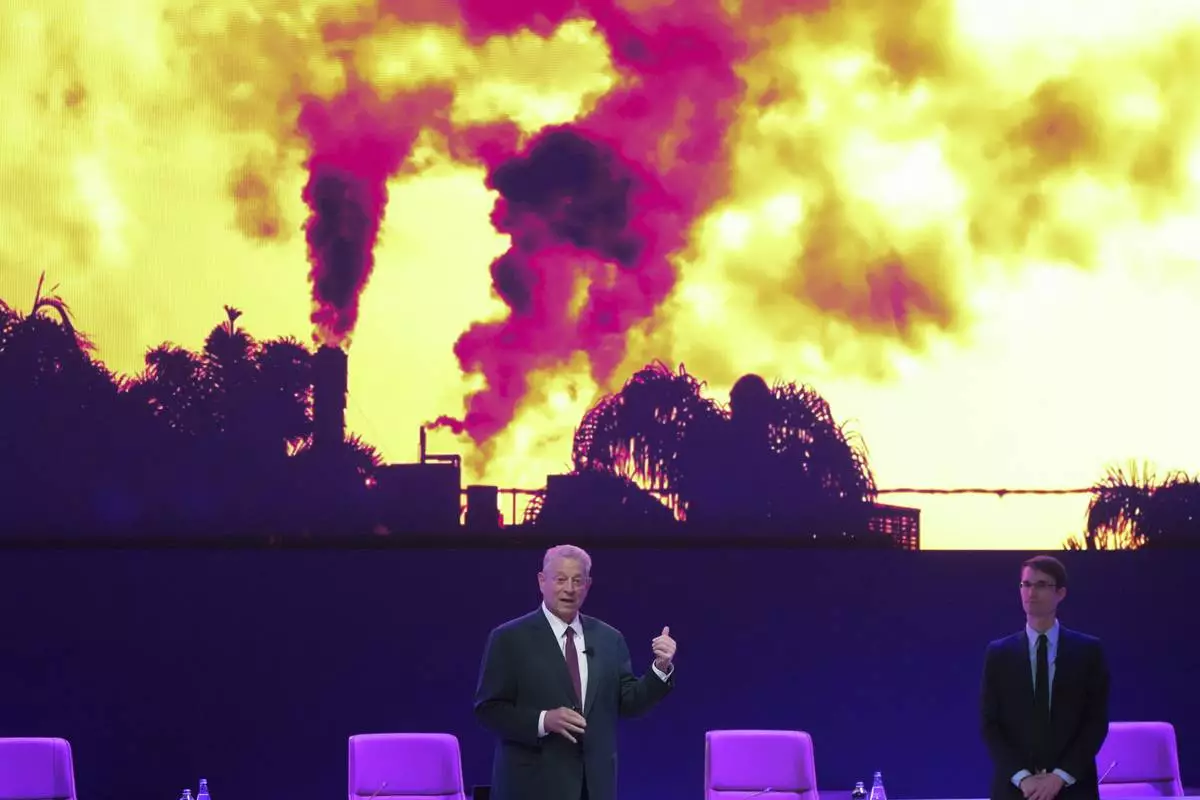
Former Vice President Al Gore speaks during a session on Climate Trace, a database that monitors emissions, at the COP29 U.N. Climate Summit, Friday, Nov. 15, 2024, in Baku, Azerbaijan. (AP Photo/Sergei Grits)






